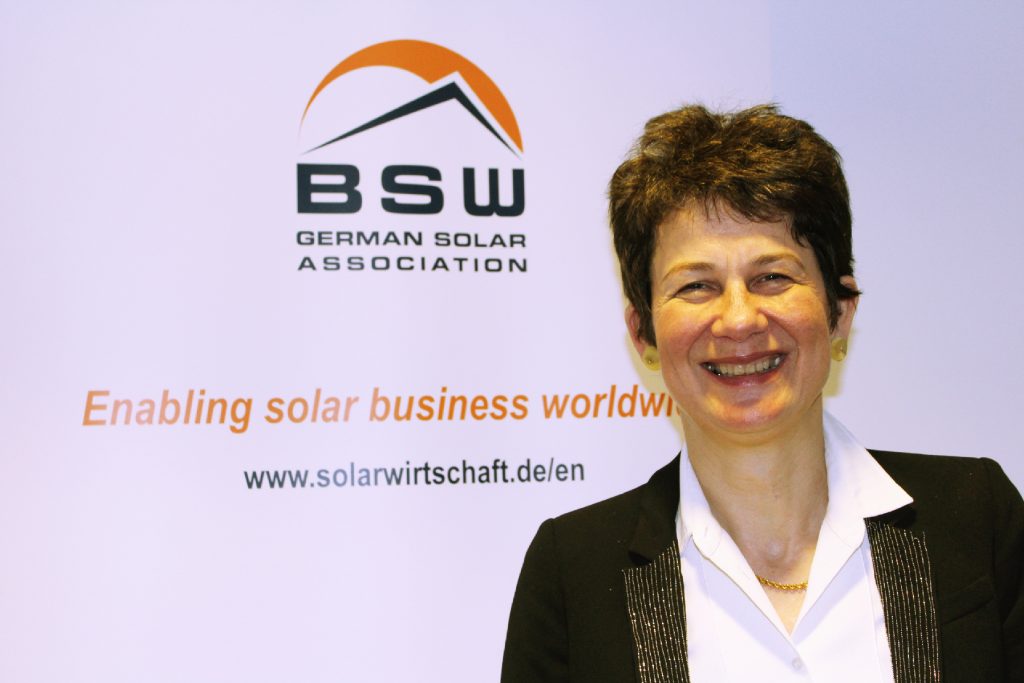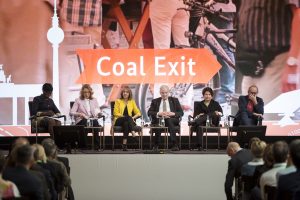With 60 percent women speakers, the 2019 Berlin Energy Transition Dialogue also attracted hundreds of other women from across the globe with daring endeavours to take a lead in the universal energy revolution.
“We are not in this sector for the sake of statistics. We do not want to just become a positive statistic, but we are striving to make a difference in the sector because this sector is so close to us as women. We cook, and we have children. We need energy in order to take care of those we love,” said Sandrine Dixson-Decleve, Co-President of the Club of Rome, speaking during the Berlin Energy Transition Dialogue (BETD) Women’s Lunch.
Sandrine is of the view that the complexity of decision making today needs women. Knowing that wildlife species are going extinct, and taking into consideration the results of the IPCC report launched in October last year, she said women need to play a significant role in driving the energy transition. Despite the commitments that come with being a women, such as marriage and child rearing, that hinder full participation in global issues, Sandrine believes women can play a role that will see the world overcome current challenges.
Of current, a report titled ‘Renewable Energy: A Gender Perspective’ released in January 2019 by IRENA stipulates that the energy sector only has 32 percent women participation. IRENA is the International Renewable Energy Agency that supports governments in their transition to a sustainable energy future. Further, the reports outlines barriers to entry for women in the renewable energy sector as being the perception of gender roles, cultural and social norms and prevailing hiring practices, all of which men, the reports notes, do not acknowledge.
Notwithstanding this report, Maria Fernanda Suarez Londono, the Columbia Minister of Energy and Mine urged women to take risks and not over think it.
“It’s not always about men not giving us opportunities. We sometimes decide to say no,” she said. With this mentality, she is convinced women will need 100 years to close the gender gap. “We have lots of work to do. We need to advance better in gender equality,” she encouraged.
Christine Lins, Co-Founder of the Global Women’s Network for the Energy Transition (GWNET) is not looking beyond a 100 years. “10 million people are currently employed in the sector. 30 million people will be employed in the sector by 2030, we hope for equality then,” she said. For this to happen she hopes for policies and solutions that can deliberately improve women’s participation by 2030.
Of current, women across the globe are busy with projects that seek to improve the world’s access to energy, especially by the rural poor. Initiatives like Giraffe Bioenergy in Kenya, Divine Bamboo in Uganda and the Turkish Women in Renewables and Energy (TWRE) among others, whose leaders graced the BETD event, have become an inspiration.
Taking the drive for the energy revolution a step further, the Global Ambassador for Renewable Energy, Ruslana Lyzhychko from Ukraine is working on launching an international renewable energy day that will be commemorated annually every June 22.
“People like me want to work and live outside cities because we love nature. So we want to save this world because we love it,” she said towards the end of the BETD women’s Lunch. “I want to make the reality of renewable energy popular. People need to know the benefits it brings,” she added.
The Berlin Energy Transition Dialogue itself now in its 5th year, is the brainchild of a woman. It was the idea of Michaela Spaeth, the current Director of Energy & Climate Change Policies at the Germany Federal Foreign Office.
The BETD has now become a leading international forum for key stakeholders of the energy sector. It gives high-level policymakers, industry, science and civil society the opportunity to share their experiences and ideas on a safe, affordable and environmentally responsible global energy transition. This year the conference is graced by 2000 participants from 100 countries, including 50 ministers and decision makers, who are exchanging on investment flows, system integration or long-time scenarios against the backdrop of dynamic innovation and the digital transformation. All in an effort to ensure that world not only has energy access, but it fulfils its Paris Agreement commitment to decarbonise the world.
-END-





